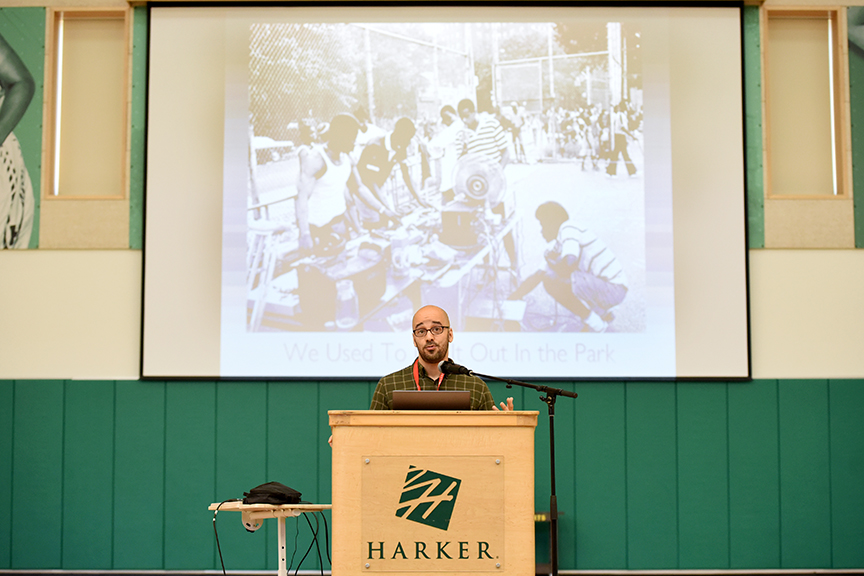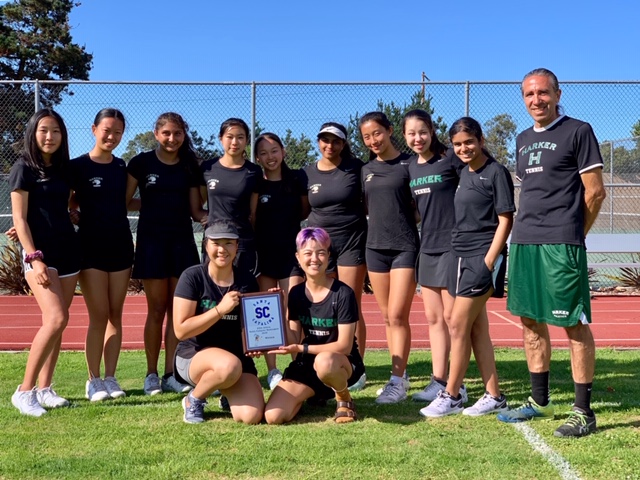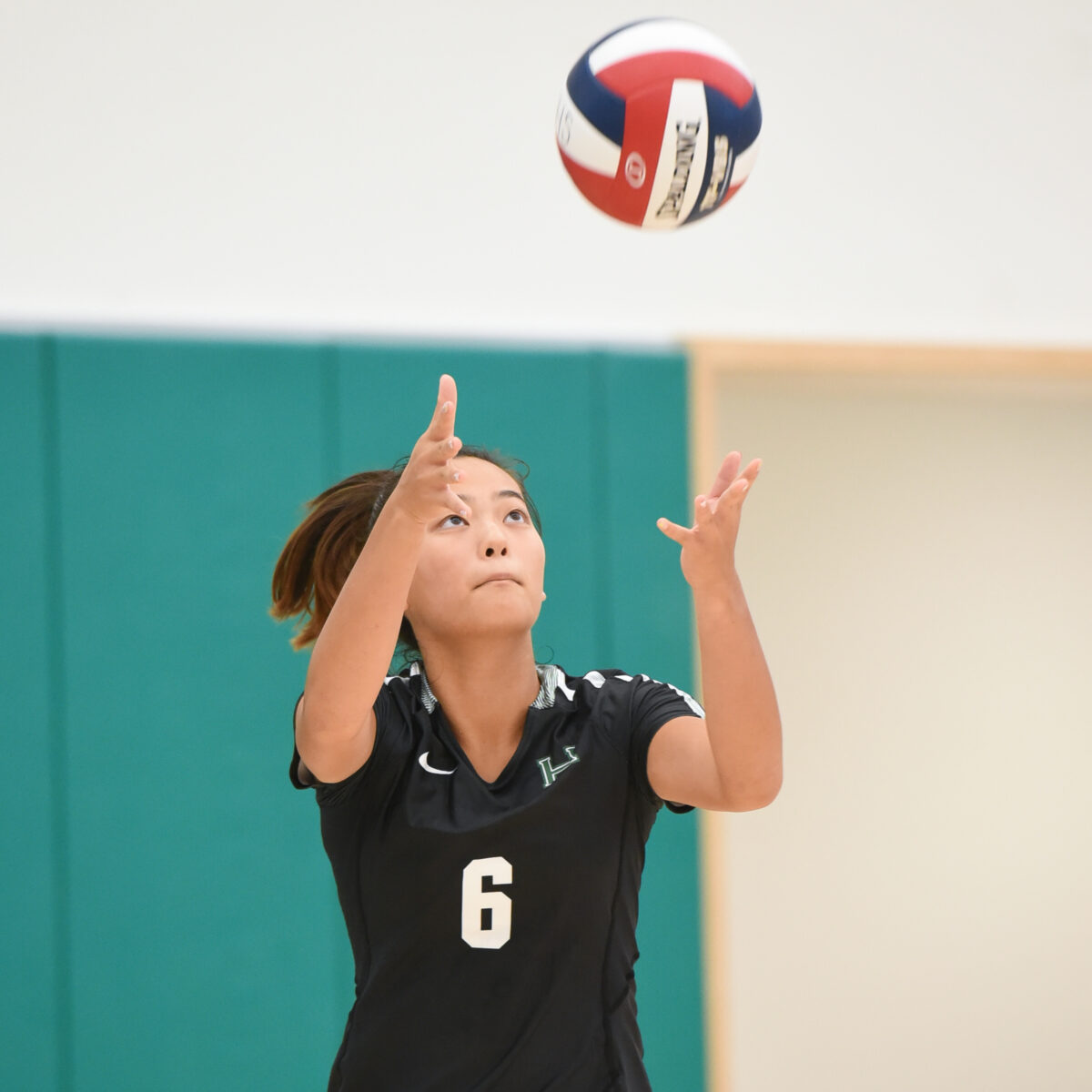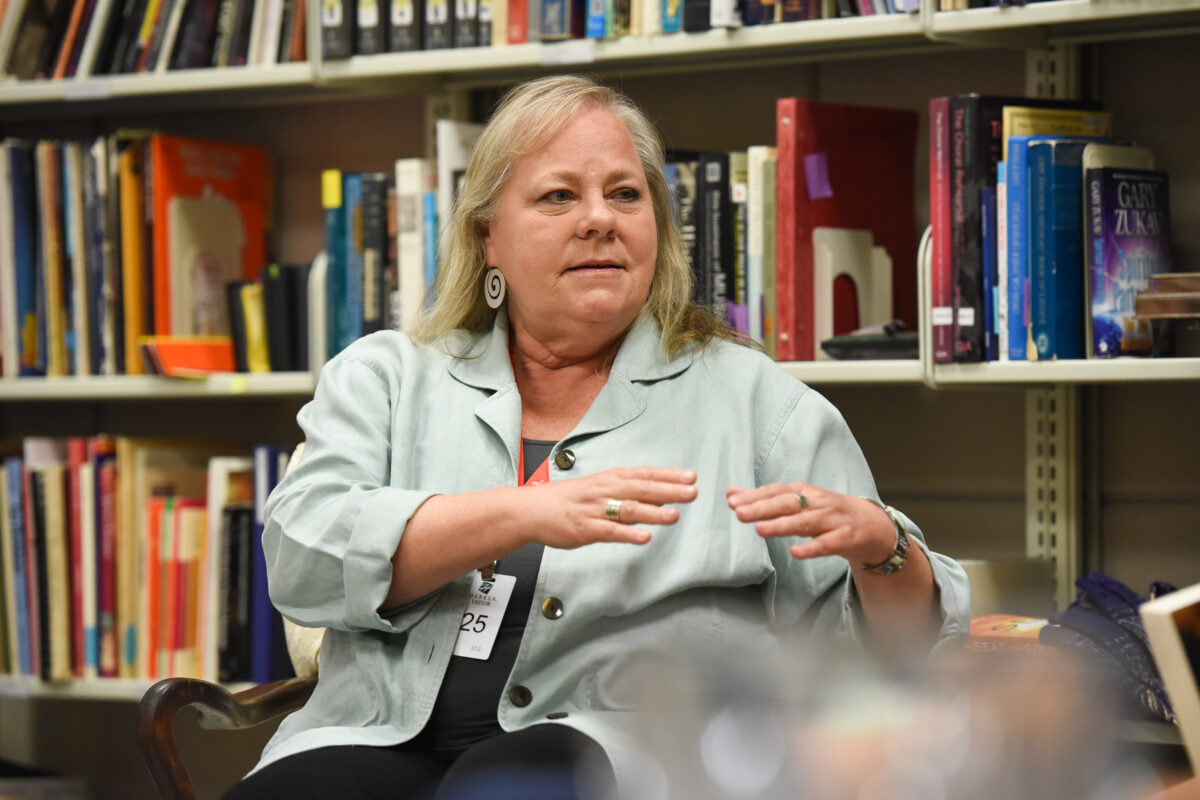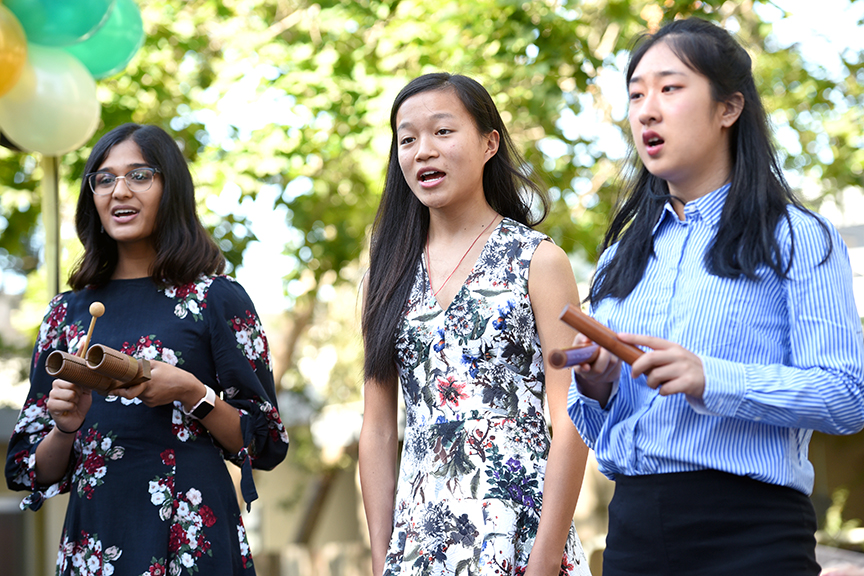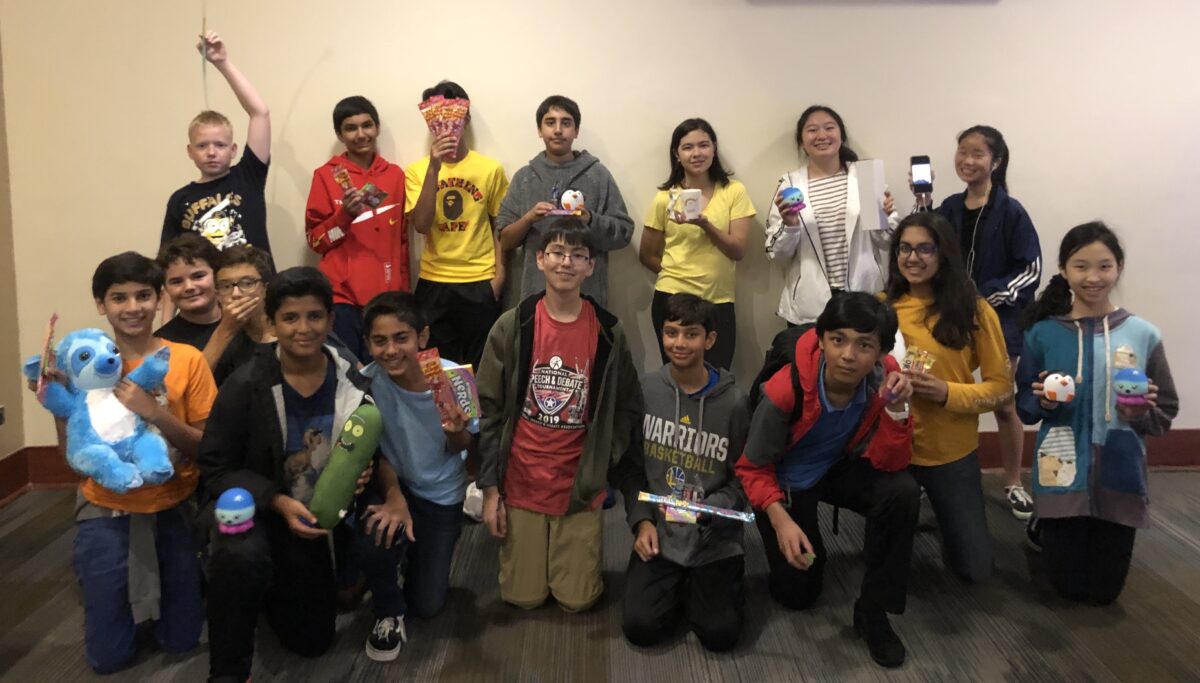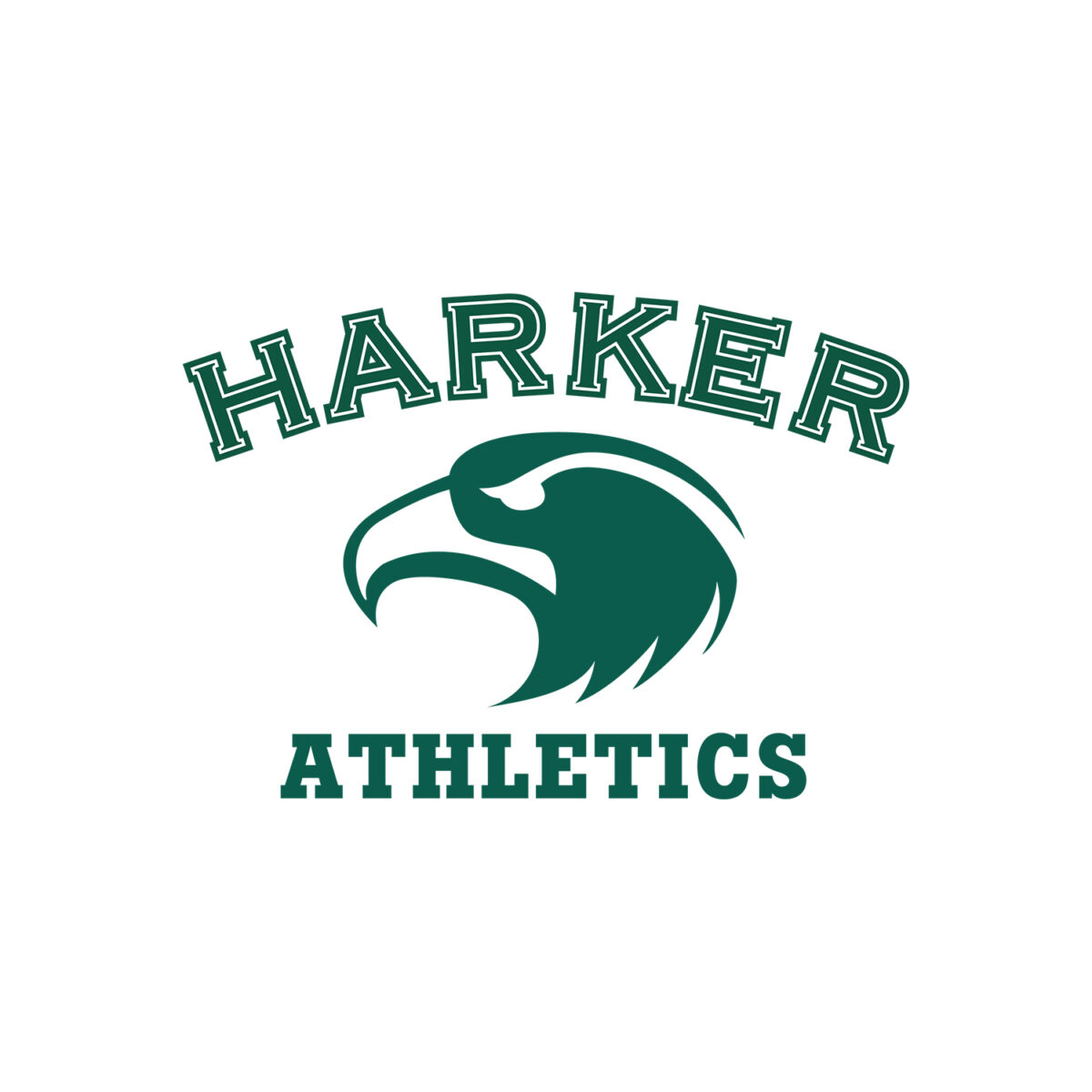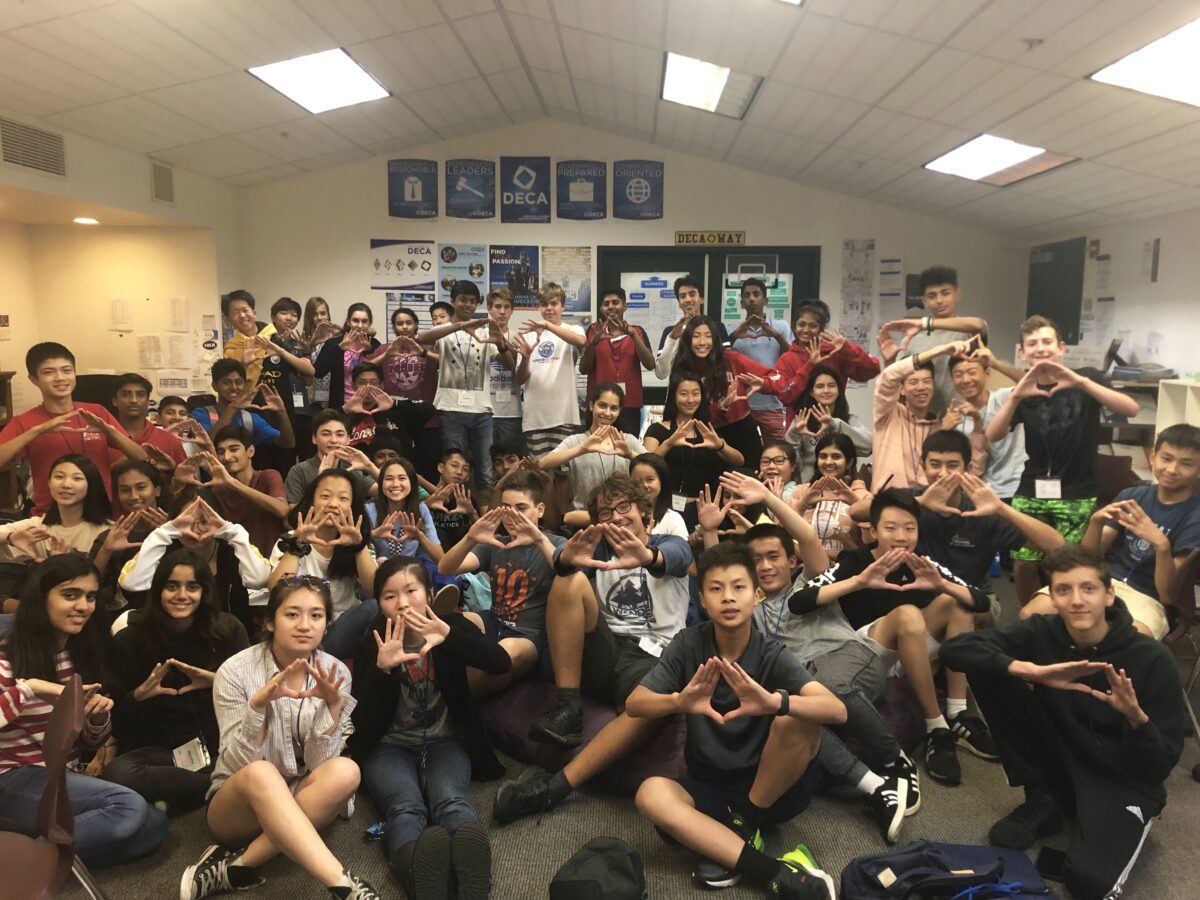Loren Powers, Harker’s new head football and strength and conditioning coach, introduced the Volt app to the campus, bringing about a new way to help all our students take their health and fitness to the next level.
Upper School
Cultural commentator Jay Smooth speaks at upper school morning assembly
On Monday morning, the upper school hosted a special assembly featuring cultural commentator Jay Smooth, who runs the popular video blog Ill Doctrine.
Girls tennis takes first, girls golf finishes second at prestigious tournaments
Girls Tennis Opening the season at the 63rd annual Santa Catalina Tennis Invitational, the girls tennis team defeated Carmel, Sacred Heart Cathedral and Castilleja…
In the News: August 2019
Harker’s chairman of the board, Albert “Chip” Zecher ’79, was appointed to the University of California, Hastings College of the Law board of directors by Gov.…
Girls volleyball kicks off the 2019-20 athletic season with a win
Girls Volleyball The girls varsity volleyball team opened its 2019 season with a 3-0 victory over Branham before going 3-2 at the Spikefest Tournament…
Visiting author discusses 30-year ordeal with stalker, speaks to science classes about environmental career
Yesterday morning, author Kaia Anderson paid a visit to the upper school campus as part of this year’s ReCreate Reading series of author visits.…
Matriculation Ceremony welcomes Class of 2023 to the upper school
Upper school students packed the campus quad on Friday for the 2019-20 Matriculation Ceremony, in which they celebrated the start of the school year…
Middle and upper school speech and debate teams get set for new season at annual retreat
The middle school and upper school speech and debate teams held their annual retreat Aug. 23-25 in Milpitas. Seventy students attended the retreat and…
2019-20 athletics season kicks off this week
Girls Volleyball The girls varsity volleyball team officially opens its 2019 season at the St. Francis Jamboree on Tuesday. The Eagles then host Branham…
Harker DECA Launch 2019 brings interested freshmen into the fold
By Gianna Chan, grade 10 Last weekend, 55 students attended Harker DECA’s sixth annual Launch event, which introduced prospective members to DECA and the…

